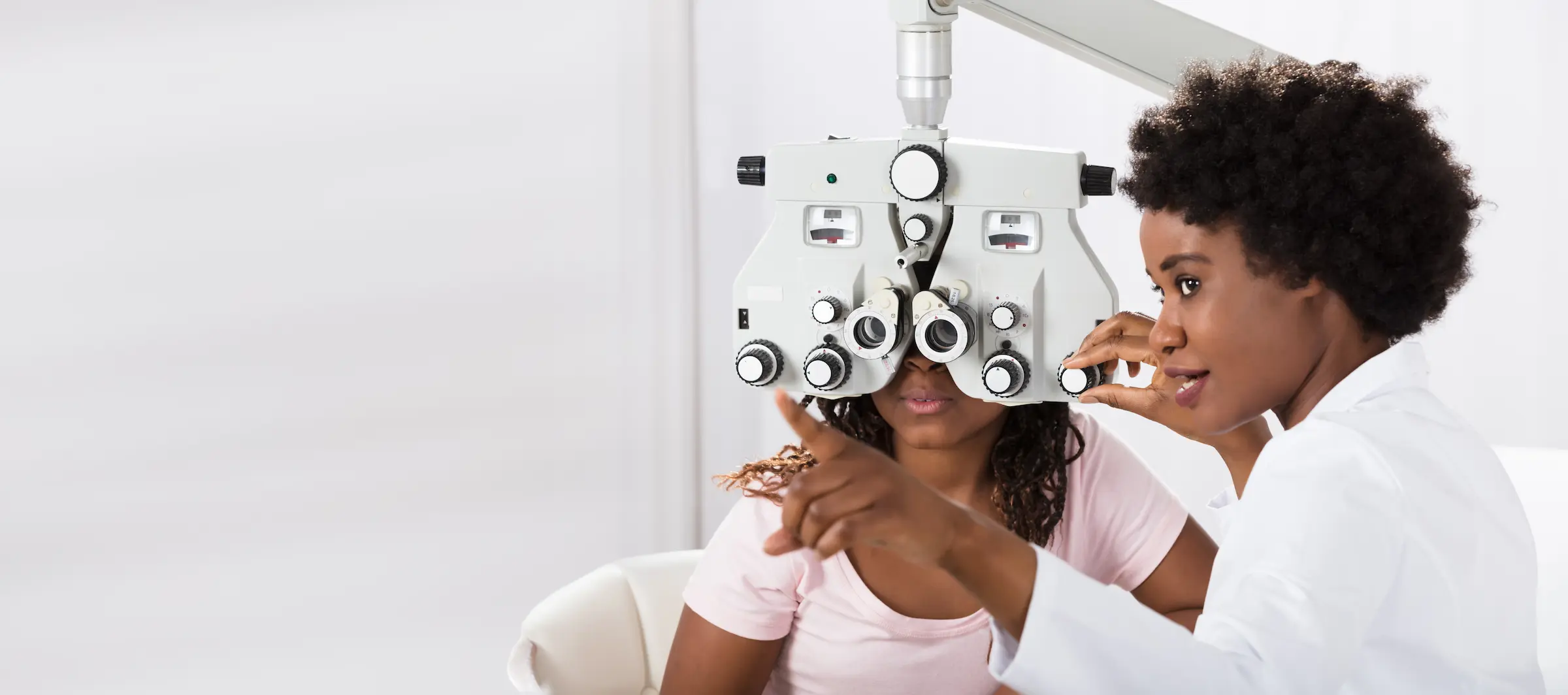At Southern Eye Group, we are dedicated to providing exceptional eye care to patients across Alabama, Florida and Mississippi and throughout the Gulf Coast. Comprehensive eye exams are the foundation of good vision and ocular health.
What is a Comprehensive Eye Exam?
A complete or comprehensive eye exam is like an annual physical for your vision and eye health. In addition to checking on your glasses or contacts prescription, eye exams are critically important in detecting eye diseases and conditions such as cataracts, macular degeneration, and glaucoma. Many of these sight-stealing eye conditions do not have symptoms in the early stages, making regular eye exams your best defense for early detection and treatment.1
Trusted Source
Department of Health & Human Services
Keep an Eye on Your Vision Health
Go to Source
Your eye doctor at Southern Eye Group will review your vision and medical history and discuss any changes you have noticed in your vision. They will then use a number of painless diagnostic tools to evaluate your vision and fine-tune your prescription. Additional tests may be performed depending on your unique needs. Your eye doctor may dilate your pupils with an eye drop because a dilated eye exam is the best way to check for many eye conditions.

How Often Do I Need an Eye Exam?
Your eye care needs are as unique as you are, so you should follow the advice of your eye doctor when scheduling eye exams. In general, you can look to the guidelines set forth by the American Optometric Association: 2
Trusted Source
Comprehensive Eye Exams
American Optometric Association
Go to Source
Eye Exam Frequency for Children
Babies should have their eyes examined at 6 months old. Children with no history of eye problems should have eye exams between the ages of 3 and 5, and then once more before first grade and once a year after that. Risk factors that may necessitate more frequent eye exams for children include strabismus, an eye injury, an eye infection, or a family history of eye conditions.
Eye Exam Frequency for Adults
People who wear glasses or contact lenses should have a comprehensive eye exam at least once per year. Adults under 65 with no vision issues should still get eye exams every two years to maintain their eye health and for early detection of any eye conditions. Adults who are over 65 should have annual exams to check for age-related eye diseases.
People with any of the following risk factors may need more frequent eye exams:
- Diabetes
- High blood pressure
- Previous eye surgery or injury
- Family history of eye disease
Do I Need an Eye Exam Even if I Have Good Vision?
Yes, eye exams are especially important after the age of 40. Even if you have excellent vision and no history of eye disease, it is good to establish a baseline of data. This will help your eye doctor detect any eye conditions earlier. Remember, many of the most common causes of vision loss, such as glaucoma, do not have any symptoms until it is too late to restore vision. Early detection through eye exams is critical to maintaining vision.

Schedule Your Eye Exam
We look forward to caring for your vision and eye health! Contact us today to schedule your appointment.
1U.S. Department of Health & Human Services. Keep an Eye on Your Vision Health. Available: https://www.cdc.gov/vision-health/about-eye-disorders/why-eye-exams-are-important.html?CDC_AAref_Val. Accessed October 8, 2024
2 American Optometric Association. Comprehensive Eye Exams. Available: https://www.aoa.org/healthy-eyes/caring-for-your-eyes/eye-exams?sso=y Accessed February 23, 2023
The doctors at Southern Eye Group have either authored or reviewed and approved this content.
Page Updated:


